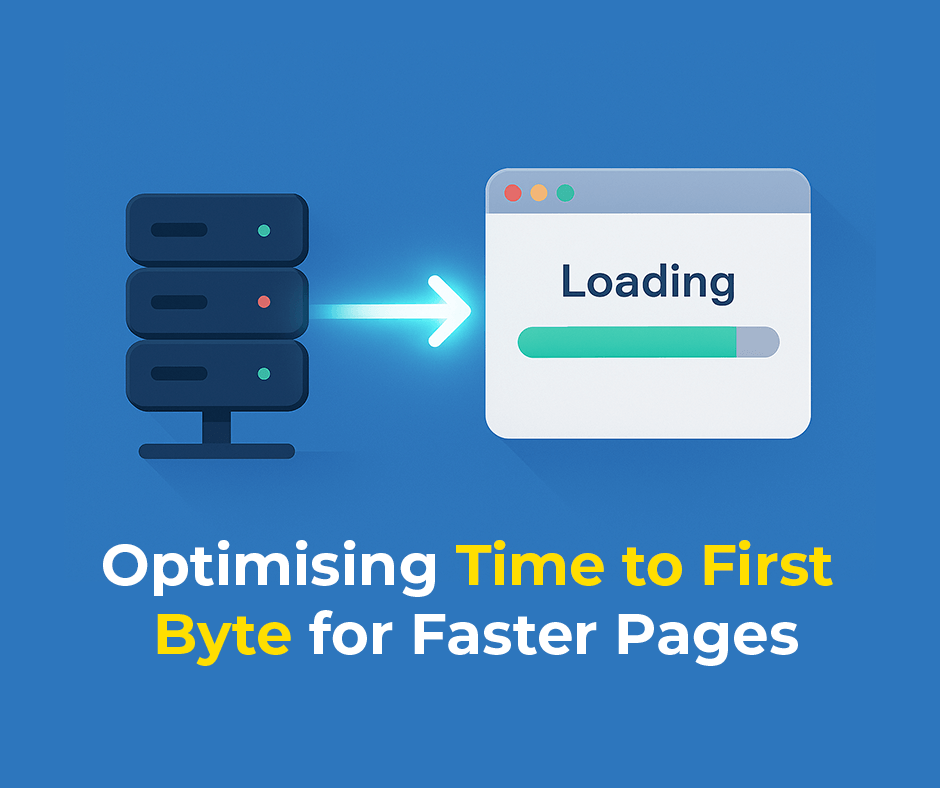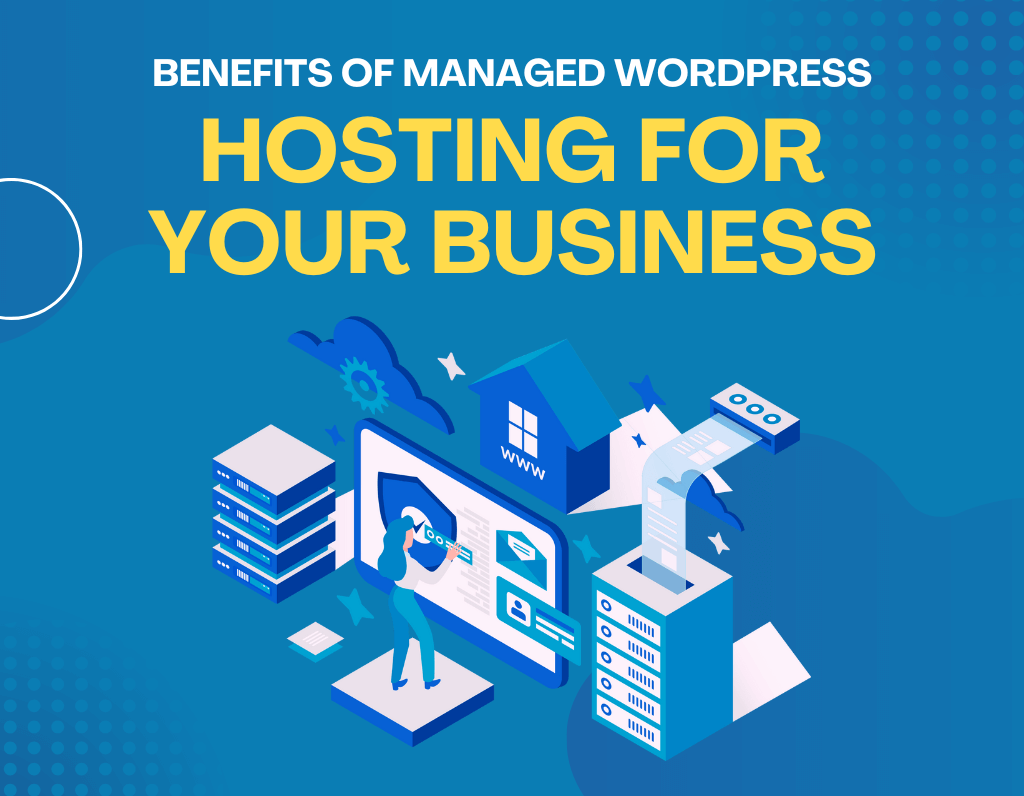Bandwidth is the amount of statistics that may be transferred among your internet site and the people travelling it. Higher bandwidth lets in for faster loading of website pages, in particular pages that have a variety of content like pictures or movies. With lower bandwidth, pages may load slowly or now not fully display all the content material.
The web website hosting service you choose affects how nicely your internet site plays. Good performance way pages load speedy, which presents a higher revel in for traffic. It also enables your website rank better in SERPs and convert more visitors into clients or attaining your desired moves. Good hosting ensures rapid statistics transfer speeds, can cope with high visitors volumes without slowing down, has sturdy protection features to guard your site, and permits you to increase sources like bandwidth and garage area as your website grows.
What is the Impact of Web Hosting on Site Speed & Performance?
Page Load Speed: When a person reveals your website via a seek engine and clicks the hyperlink, the internet web hosting determines how rapid your pages load for that traveller. Slow loading pages frustrate site visitors and lead them to go away fast. Search engines prioritise websites that load rapid, so slow speeds can harm your ratings. Web hosts with extra bandwidth and better server assets help pages load quicker. Optimising code and picture report sizes also improves load times.
Website Downtime: You don’t need your website to be unavailable or no longer running at all. Good web website hosting continues your website up and jogging consistently without interruptions. If your website is down, it is absolutely unavailable to visitors and search engines like google, causing you to overlook out on potential traffic and sales. Reliable website hosting with redundant servers, normal backups, and high uptime guarantees save you extended downtime.
Server Location: Where the hosting organisation’s servers are physically located can effect load times for traffic coming from exceptional parts of the world. Nearby servers have a tendency to offer quicker loading. Your traffic’s proximity to the server affects speed. If maximum of your target audience is in North America, hosting on a server located in Europe will bring about slower load instances for the ones customers. Many hosts provide geographic load balancing throughout more than one records centres.
Type of Hosting: There are extraordinary forms of internet web hosting like shared, digital non-public, or dedicated servers. The type you pick influences overall performance, safety, and expenses. Shared website hosting is most inexpensive but your percentage of server resources. VPS/Cloud offers committed resources. Dedicated servers offer the best performance, however are most high-priced. The proper type relies upon your traffic degrees and performance desires.
Bounce Rate: If pages load slowly, greater human beings will speedy go away your website online after touchdown there from a seek. A high “leap rate” like this will harm your search rankings. An excessive soar price signals humans quick depart after landing in your site, which search engines like google view as a poor consumer experience. Slow hosts increase, soar fees. Faster hosts lessen bounces and enhance search visibility.
Security: Quality hosting offerings have robust security measures to shield your site from hacking attempts and maintain your visitors’ records secure. Outdated software program, weak passwords, and absent firewalls go away your site at risk of hacking which can deface it or souse borrow information. Quality hosts have modern day protection protocols and monitoring to thwart assaults.
Customer Support: When issues arise, it’s treasured to have a website hosting issuer that offers dependable technical support to quick resolve troubles. If your site goes down or has issues, prompt support is essential to get it lower back online quickly earlier than dropping an excessive amount of traffic/revenue. Evaluate hosts’ support channels and response instances.
Hosting Company: Different hosting organisations vary in their performance, reliability, security practices, and universal pleasant of carrier. Major hosts like GoDaddy, Bluehost, WP Engine make investments heavily in infrastructure, today’s hardware/software program, and pinnacle skills to offer advanced performance and reliability over price range hosts.
Ways to Improve your Website’s Performance
1. Optimise photographs: Uploading unnecessarily huge image documents can extensively gradual down website load times. Always resize pics to the precise dimensions required before add the use of a photograph editor. Then run them through an optimiser like Tiny PNG, JPEG mini, or Kraken.Io, which uses superior compression algorithms to lessen document sizes through 60-eighty% without tremendously affecting satisfactory. Newer photograph formats like WebP and AVIF offer superior compression over JPG/PNG, decreasing sizes via 25-35%. Specify these codecs when to start with saving pix to permit browsers to load the most optimised versions.
2. Reduce requests: Every external record like snapshots, stylesheets, scripts requires a separate HTTP request which creates overhead from the TCP connections. Combining a couple of pics into sprites and using CSS positioning reduces requests. Concatenating all CSS files into one stylesheet and JS documents into fewer script files minimises requests. Inline very small assets like tiny images or CSS directly into the HTML/CSS code to keep away from extra requests completely.
3. Use browser caching: When a user first visits, the browser downloads all website documents. Browser caching permits “static” files like pics, CSS, JS that do not exchange regularly to be stored or “cached” in the browser’s nearby storage. On subsequent visits, the cached nearby copies load instantly rather than re-downloading from the server, substantially accelerating load instances. Implement cache headers, configure cache guidelines, and use aid revisioning to govern caching conduct.
4. Delay loading JavaScript: JavaScript blocks the browser from rendering visual factors until it is fully performed, which could put off the preliminary page load if scripts are render-blockading. Adding the “defer” or “async” characteristic instructs browsers to simplest execute non-vital scripts after the DOM and visible factors have loaded, preventing the ones scripts from blockading the initial load.
5. Limit external scripts: Loading in too many external scripts from different 1/3-celebration domain names like advert networks, net fonts, monitoring codes will increase DNS lookup, connections, requests – developing great overhead. Minimise use of non-vital scripts, host frequently accessed 1/3-birthday party scripts domestically, and bear in mind using script control services.
6. Minimise redirects: Each redirect between URLs requires an additional server roundtrip of HTTP requests/responses, including delays. Properly configure redirects, keep away from needless redirect chains/loops with the aid of pointing URLs without delay. Leverage browser caching to temporarily save and reuse redirect headers to bypass lookups.
7. Minify CSS/JS documents: Extra whitespace characters, code formatting, and feedback get covered in stylesheets and script files, increasing their file sizes barely. Minification tools analyze the code and strip out all this needless information to lessen file sizes. The extra optimised record sizes require less time to transfer and get processed with the aid of browsers.
8. Use efficient third-party services: For loading aid-in depth content like movies, maps, net fonts – it is higher to use optimised third-party services or content material transport networks mainly designed to efficiently take care of, cache and serve that kind of content material with high availability global in preference to self-web hosting.
Summary
Website velocity is about how fast the pages of an internet site load and grow to be fully usable when a person visits it using an internet browser. A sluggish website that takes a long time for all the content and functions to reveal up can frustrate site visitors and lead them to leave the website. On the opposite hand, websites that load quickly and easily generally tend to get extra site visitors who stick round longer.
When a website is gradual to load, it gives a negative person experience. People don’t like looking ahead to pages to display, in particular on cellular devices. Slow speeds make it harder to navigate the website online, view content material like photos/videos, and use interactive functions. This can purpose traffic to quickly abandon the site in prefer of quicker options.
However, a quick internet site that hundreds all its pages, visuals, and capability swiftly creates a miles higher experience. The quick load times make it easy for traffic to consume and have interaction with the content material right away. It leaves an advantageous impression of the internet site being responsive and properly-built. This encourages people to view extra pages, stay longer on the website, and be more likely to take desired moves like making purchases or signups.
Studies have proven that even mild delays of only a few seconds can notably growth abandonment costs and damage critical metrics like jump fee, conversion charge, pageviews in step with session, and in the long run revenue. Making website performance a concern results in higher site visitors, engagement, conversions, and pleasure from traffic.
Want to improve your website speed and performance? Learn how – contact us today!






